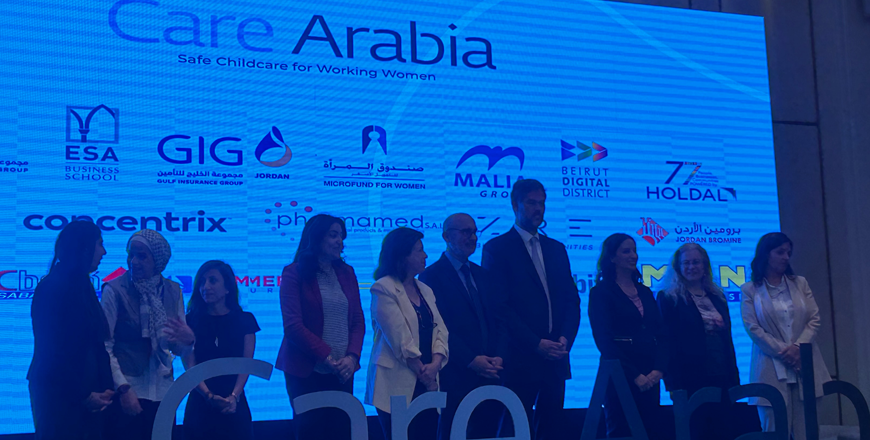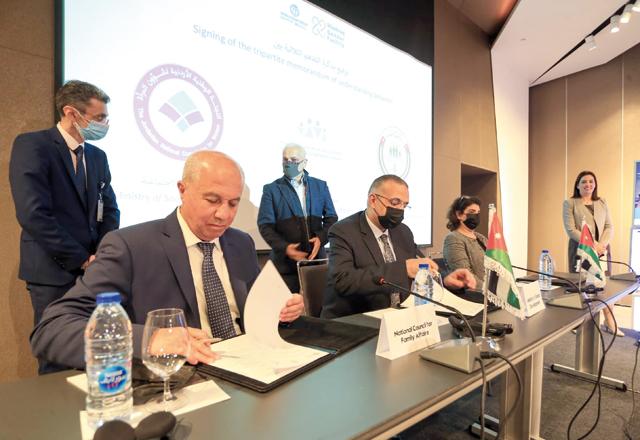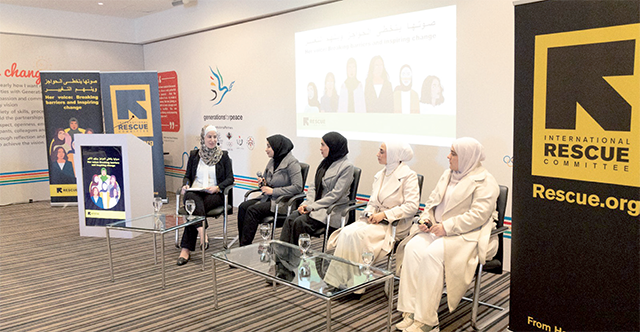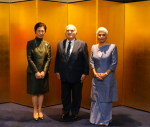You are here
Care Arabia’: Creating quality childcare for working women of Jordan, Lebanon
By Maria Weldali - Jun 06,2024 - Last updated at Jun 06,2024

The World Bank and the International Finance Corporation launches the ‘Care Arabia’: Creating Safe and Quality Childcare for Working Women (Photo by Maria Weldali)
AMMAN — The World Bank and the International Finance Corporation (IFC) on Wednesday launched the “Care Arabia”: Creating Safe and Quality Childcare for Working Women.
Led by IFC, the World Bank Group initiative is aimed to address a major barrier hindering women’s labour force participation and that is the limited access to childcare. As the lack of affordable and safe childcare options, is keeping women out of the workforce and forcing many to exit the labour market.
“The initiative aims to advance safe childcare and responsible investing in the sector by bridging the gap between the demand [private sector employers] and the supply [private childcare providers] of early childcare services in Lebanon and Jordan,” according to organisers.
In her keynote address, minister of social development and chairperson of the Inter-Ministerial Committee on Women’s Empowerment, Wafaa Bani Mustafa, said that “having safe, happy and healthy spaces for children is significant in two important ways”.
She continued: “On one hand, the early investment that encourages the inclusion of children in educational and academic settings reflects upon and positively impacts their productivity, thereby contributing to the economy. On the other hand, having quality childcare leads to having more women in the workforce.”
Bani Mustafa also detailed the efforts made within the ministerial committee focused on women empowerment, and particularly following the launch of the Economic Modernisation Vision, pointing out that the nursery care industry is among the committee’s main priorities.
Jordan aims to create one million jobs and double women’s workforce to reach 28 per cent by 2033, according to the Economic Modernisation Vision.
According to the World Bank, the Mashreq region, comprising Jordan, Iraq and Lebanon, is home to some of the lowest female labour force participation rates worldwide.
For her part, World Bank (WB) Resident Representative in Jordan Holly Benner said that “Gender equality is essential for development” contributing to economic growth and poverty reduction.
According to WB analysis, Benner noted that the largest gender gaps in labour force participation worldwide, are in lower middle-income countries like Jordan. Adding that the female labour force rate in the Kingdom is just over 15 per cent, still being among the lowest in the world.
Talking about the WB five year country strategy for Jordan, which has an essential focus on tackling the multi-facet barriers to women’s labour force participation, she pointed that it supports transformational progress in both public and private sectors, together with the recent WB financed “Enhancing Women’s Economic Opportunities” initiative, geared towards supporting the Government of Jordan’s implementation of reforms and measures that contribute to improving legal, workplace, and social conditions so that more women can enter and stay in the labour market, with a focus on expanding access to affordable, quality and safe childcare.
“Expanding access to quality childcare is an investment in the country’s stock of human capital,” she explained.
In Jordan, there are nearly 1,200 licensed nurseries, but most of which are in public institutions. “These childcare facilities have the capacity to serve less than 3 per cent of children under 5 years of age.” She further added.
Speaking at the launch event, IFC Regional Vice President Hela Cheikhrouhou, said that access to quality childcare services is an enabler of women’s increased employment. Noting that “It takes effort, time and investment… [to boost women’s employment through accessible childcare]”.
Moreover, Cheikhrouhou reflected on various perspectives relating to the importance of having more women in the workforce, and the crucial role of childcare in encouraging more women to join the
Related Articles
AMMAN — The findings of a study titled “Childcare Services in Jordan: Assessment of Supply and Demand” revealed that low-income households i
AMMAN — The International Finance Corporation (IFC) on Wednesday said it is ramping up its support for Jordan’s private sector and helping t
AMMAN — The International Rescue Committee (IRC) held an event on Tuesday to mark International Women’s Day and better understand the challe
















